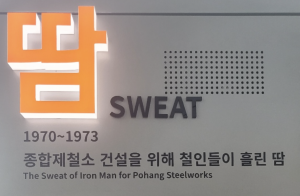Citizen science and stakeholders involvement
Metztli hernandezCITIZEN SCIENCE
Epistemic negotiation
Stakeholders (indigenous groups, activist, scientist, scholars, etc)
CITIZEN SCIENCE
Epistemic negotiation
Stakeholders (indigenous groups, activist, scientist, scholars, etc)
Photo essay of wall text of POSCO Museum of Pohang

XXX

1) In domains of biosecurity: bio-terrorism (smallpox, anthrax, etc.), emerging infectious diseases (AIDS, tuberculosis [TB], malaria, etc.), life science (intention production of various deadly organisms for research or otherwise), and food safety (animal borne pathogens and diseases like mad cow, E. coli, etc.)
2) Global health and emergency response: The DOTS (Directly-Observed Treatment, Short-Course) program failed in several areas to be a service-ready anywhere in the globe for drug resistant TB in places like Georgia. The strict regulations in treatment did not account for the variance in doctor training and practices in this area of the world. Its rigidness led to the breakdown of the protocol adherence.
3) Health security and modernization risks: As the world modernizes, we generate new risks that need to be addressed. For example, in the 20th century, the technological and system advancements in agriculture and food processing have aided in consistent and increased food supply, but also introduced new problems such as sanitation practices and diseases that led to the creation of the Food and Drug Administration and the expansion of the Department of Agriculture.
There were a few notable viewpoints that were not included. First, those on the international level, but also the doctors and those managing the outbreak (other than the one Ebola response member that was interviewed).
This article has been cited in several books as well as discussed in other colleges’ courses.
The Martians Have Landed!: A History of Media-Driven Panics and Hoaxes
Technology and the Culture of Modernity in Britain and Germany
The Disaster Experts: Mastering Risk in Modern America
History weekly response | myOnlineHomeworkHelp.com
Aftermaths - Syllabus Fall 2013 - Science and Technology Studies
There are dense citations throughout the article but no bibliography is included at the end of the chapter so it is not possible to determine.
CP111 did an article about this research article.
Southern Spaces did an article about the topic and listed this article as a resource.
Even Quizlet has a page citing and for this article.
Currently the only supported language is English. Older patients or people that are not as familiar with current technology my find this system difficult to use. There is no public data on the effectiveness of this platform. The video chats could lack the wholeness of in person visits and the online tests could be inaccurate.